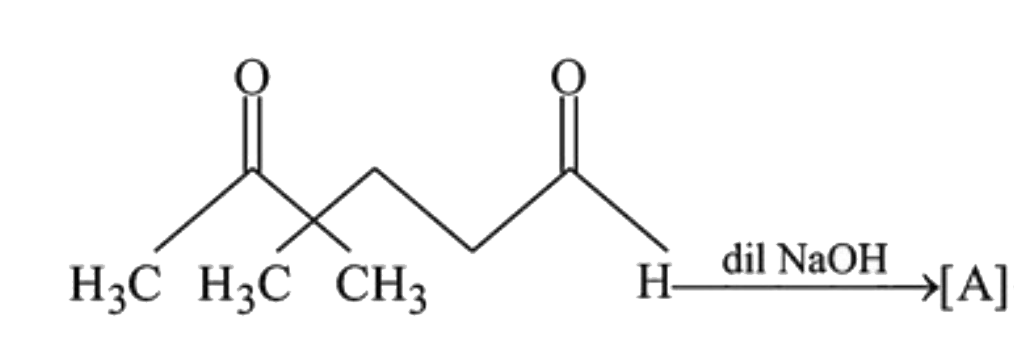E+FΔ−−−−→2000∘CCaC2 CaC2Δ−−→N2D+E
CaC2H2O−−→A↑⏐⏐+B
B(aq)CO2 gas (excess)−−−−−−−−−→G
GdiluteHCl−−−−−→H+I↑⏐⏐+H2O HNa2SO4−−−−→J+K
[F is a crystalline solid, E is obtained in elemental from, J is percipitated out]
Select incorrect statement
Compound (G) can be obtained in solid form.
The precipitate (J) is soluble in water
Compound (D) can be used as a fertilizer
Compound (D) is calcium cayanamide.
The correct Answer is:A
Step by step video, text & image solution for E+F overset(Delta)underset(2000^(@)C)rarrCaC_(2) CaC_(2) overset (Delta)underset (N_(2))rarrD+E CaC_(2) overset(H_(2)O)rarrAuarr+B B(aq) overset(CO_(2)" gas (excess)") rarr G G overset("diluteHCl")rarrH+I uarr+H_(2)O" " H overset(Na_(2)SO_(4)) rarrJ+K [F is a crystalline solid, E is obtained in elemental from, J is percipitated out] Select incorrect statement by Chemistry experts to help you in doubts & scoring excellent marks in Class 11 exams.
Updated on:21/07/2023Topper's Solved these Questions
- S-BLOCK ELEMENTSBOOK - NARAYNACHAPTER - S-BLOCK ELEMENTSEXERCISE - passage 3
1 Videos
- S-BLOCK ELEMENTSBOOK - NARAYNACHAPTER - S-BLOCK ELEMENTSEXERCISE - Passage 4:
1 Videos
- S-BLOCK ELEMENTSBOOK - NARAYNACHAPTER - S-BLOCK ELEMENTSEXERCISE - Comprehension Type question
5 Videos
- REDOX REACTIONBOOK - NARAYNACHAPTER - REDOX REACTIONEXERCISE - Exercise -4
114 Videos
- SOLID STATEBOOK - NARAYNACHAPTER - SOLID STATEEXERCISE - LEVEL-V
122 Videos
Similar Questions
Knowledge Check
E+FΔ−−−−→2000∘CCaC2 " " CaC2Δ−−→N2D+E
CaC2H2O−−→A↑⏐⏐+B
B(aq)CO2 gas (excess)−−−−−−−−−→G
GdiluteHCl−−−−−→H+I↑⏐⏐+H2O HNa2SO4−−−−→J+K
[F is a crystalline solid, E is obtained in elemental from, J is percipitated out]
Select correct statementAThe compound (B) is less soluble in water than (G)BElement (E ) is a good oxidising agentCHydrolysis of (D) gives a gas which has carbon is sp hybridisation.DHydrolysis of (D) gives a gas which has nitrogen in sp2 hybridation.E+FΔ−−−−→2000∘CCaC2 CaC2Δ−−→N2D+E
CaC2H2O−−→A↑⏐⏐+B
B(aq)CO2 gas (excess)−−−−−−−−−→G
GdiluteHCl−−−−−→H+I↑⏐⏐+H2O HNa2SO4−−−−→J+K
[F is a crystalline solid, E is obtained in elemental from, J is percipitated out]
Select correct statementACompound (K) gives white precipitte with gas (I)BCompound (H) gives a white precipate with KFCCompound (K) can also be obtained by the action of dilute HCl on (F)DCompound (J) on strong heating (>400∘C) gives a solid residue and no gasesous productsBaC2+N2Δ−−→(A)CaC2+N2Δ−−→(B)
(A) and (B) areABaCN2,CaCN2BBa(CN)2,Ca(CN)2CBa(CN)2,CaCN2Dnone of the above
 H2O+−−−→Δ[B]
H2O+−−−→Δ[B]
View SolutionIn the reaction sepuence, CaC2H2O−−→Adil.H2SO4−−−−−−→Hg2+BH2−−→NiC, the product Cis
View SolutionBaC2+N2Δ−−→(A)CaC2+N2Δ−−→(B)
(A) and (B) are
View SolutionCH3−C∣BrH−CH2−O∣∣C−CH3N2H4,ӨOH−−−−−→Δ product :
View Solution2Ph−O∣∣C−CH3Mg−Hg−−−−→H2OConc.H2SO4−−−−−−−→ΔKMnO4H⊕−−−−−−−→
The final product is
View Solution
